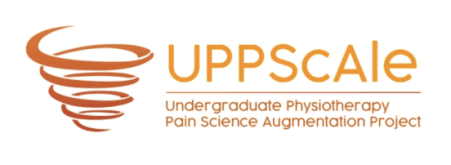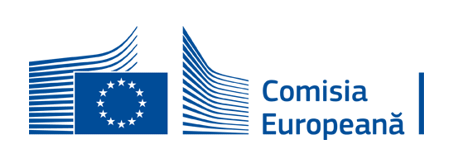



The UPPScAle strategic partnership is a powerful transnational collaboration aiming to innovate, improve and standardise Bachelor Physiotherapy pain science curricula across Europe. Pain science is a core field in a physiotherapy curriculum and physiotherapists are essential members of healthcare teams managing people with pain within a biopsychosocial framework.
Chronic pain affects millions of people worldwide across the lifespan and is a global cause of disability in the developed and developing world alike. Poorly managed pain is costly not only for the affected individuals and their families (12-30% EU member states) but also for governments and taxpayers with estimated direct and indirect costs of chronic pain are between 2-3% of GDP across member states (annual cost of 441 billion euro to Europe). Pain management is the primary reason people attend physiotherapy for treatment. The International Association for the Study of Pain 2010 Declaration of Montreal states that all patients have the right to have access to the appropriate assessment and treatment of pain by adequately trained healthcare professionals. However, there is currently no standardised curriculum or common training framework for physiotherapists, with professional education about pain management repeatedly documented as inadequate worldwide. Hence the inequities in pain science knowledge across Europe results in inequitable health service delivery and costs and most importantly to significant differences in patients quality of life.
Greater connectivity between higher education systems with standardised curricula will also reduce obstacles that face physiotherapists applying to practice their profession across geographical borders in EU member states. Once graduated Physiotherapists are consistently the 4th most mobile regulated profession that travels abroad to practice their profession in the EU. Under the EU Directive 2005/36/EC in principle physiotherapists are permitted freedom of movement to practice their profession across geographical borders of EU member states. However, as there is no common training framework for physiotherapists, and training requirements differ from country to country, having professional qualifications recognised can be challenging between one EU member state and another. A standardised curriculum in pain science physiotherapy could reduce challenges that graduates face and serve as a test case for physiotherapy curricula as well as other health professional Bachelor programmes.
Work Package 1 is led by University College Dublin (UCD), Ireland. Work Package 1 of the UPPScAle project consists of curriculum benchmarking of Bachelor Physiotherapy pain science curricula against international best practice (EFIC Pain Physiotherapy curriculum) to identify gaps in learning
Work Package 1 involves a two stage process.
A curriculum review process maps partners' current pain science curricula against international best practice for graduate physiotherapists (Core curriculum for the European Diploma in Pain Physiotherapy), facilitated by experts in curriculum design in University College Dublin.
A mapping matrix will be sent to the principal investigator in each partner site (Ireland, Croatia, Romania, Slovenia, The Netherlands) to share with their programme colleagues to complete. Categories included:
The objective of part 2 is to identify key topics and teaching approaches to augment pain science curricula in undergraduate physiotherapy programmes across five European universities.
A co-design hybrid focus group (FG) will be undertaken with academic physiotherapists and students from five universities across Europe (Ireland, The Netherlands, Croatia, Slovenia, Romania). Patient representatives from Chronic Pain Ireland (registered charity supporting people living with pain) also attended.
To inform the FG De Bono’s ‘6 Hats’ Theory will be utilised2. This theory identifies six distinct lines of human thought in problem solving. Each is called a ‘hat’ and assigned a colour: white (information and facts); yellow (benefits and positives); black (difficulties and dangers); red (feelings, intuition); green (new ideas and possibilities); blue (thinking processes). Mixed groups (academics, students and patients) will independently discuss two specific ‘hat’ themes (20 minutes each), after which participants will come together to give feedback.
Incorporating the patient and students voice in the curriculum is essential and easily facilitated using co-design FGs. Key themes will be further discussed and incorporated into the partners curriculum to enhance pain science education in physiotherapy programmes.
References:
Work Package 2 is led by Univerza V Ljubljani (UL), Slovenia. Work Package 2 consists of creating a comprehensive pain science curriculum that is delivered at the Teach-the-Teacher Pain Schools to address limitations in knowledge in certain topics / areas within the enhanced curriculum that were identified in WP1.
These topic areas and training needs will be reviewed, categorised and mapped to one of the two Train-the-Trainer Pain School programmes. Where relevant, specific topics will be introduced in the first 'Train-the-Trainer’ Pain School and revisited / explored more deeply in the advanced 'Train-the-Trainer’ Pain School. Based on the programmes content an international panel of experts will be invited to deliver specific aspects of the programmes and collaborate with Stichting Hogeschool Utrecht and University of Craiova (UCV) to develop innovative and evidence-based schedules for the two training programmes.
To accompany the Train-the-Trainer Pain Schools a manual will be developed. This manual contains reference material (lecture objectives, scientific literature, best practice guidelines, key relevant references and website addresses etc) deemed relevant to the particular topics. A short assessment piece allows participants to self-test their knowledge after the lecture. This resource will be widely available allowing for a much greater reach, with all the UPPScAle partners in a position to act as national resources for other HEIs having completed the two 'Teach-the-Teacher’ Pain Schools and contributed to the development of the manual.
This manual aims to support academic staff in augmenting their pain science knowledge using pedagogical approaches that will enrich their teaching and learning activities using innovative, student-centred pedagogical approaches. The manual will be translated into partners native language.
Materials, recorded lecturers, the manual and reflective diary will be uploaded to the Open Education Resource (OER).
Work Package 3 is led by Universitatea Din Craiova, Romania. An open access database, or Open Education Resource, will hold the materials developed for and during the Pain Schools Outputs, that can be accessed by partners and relevant stakeholders. This resource will address identified limitations to support academics.